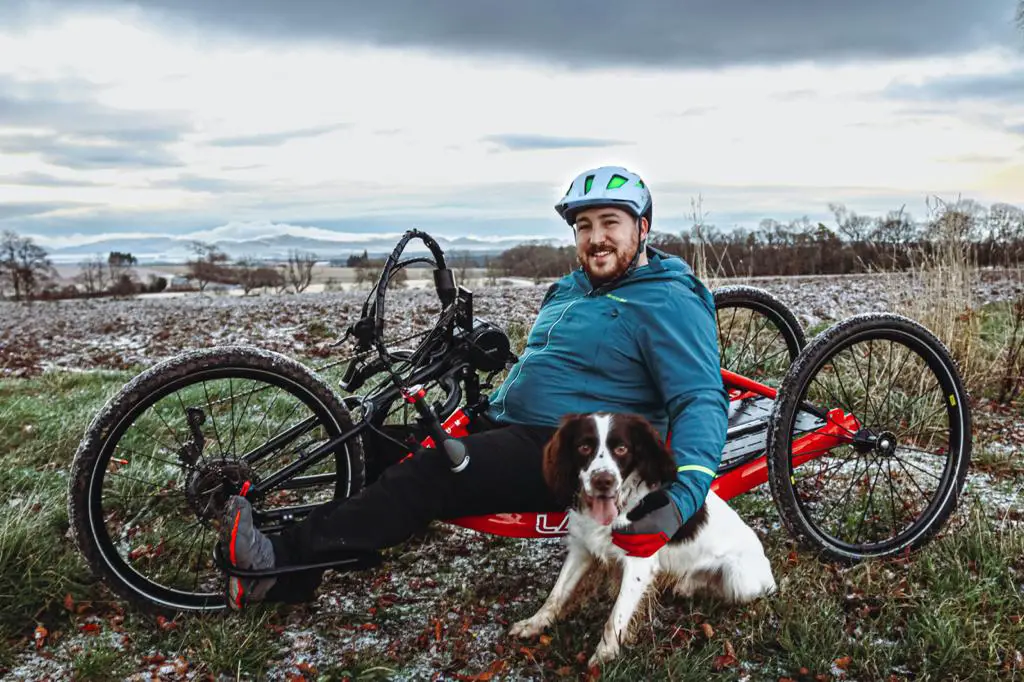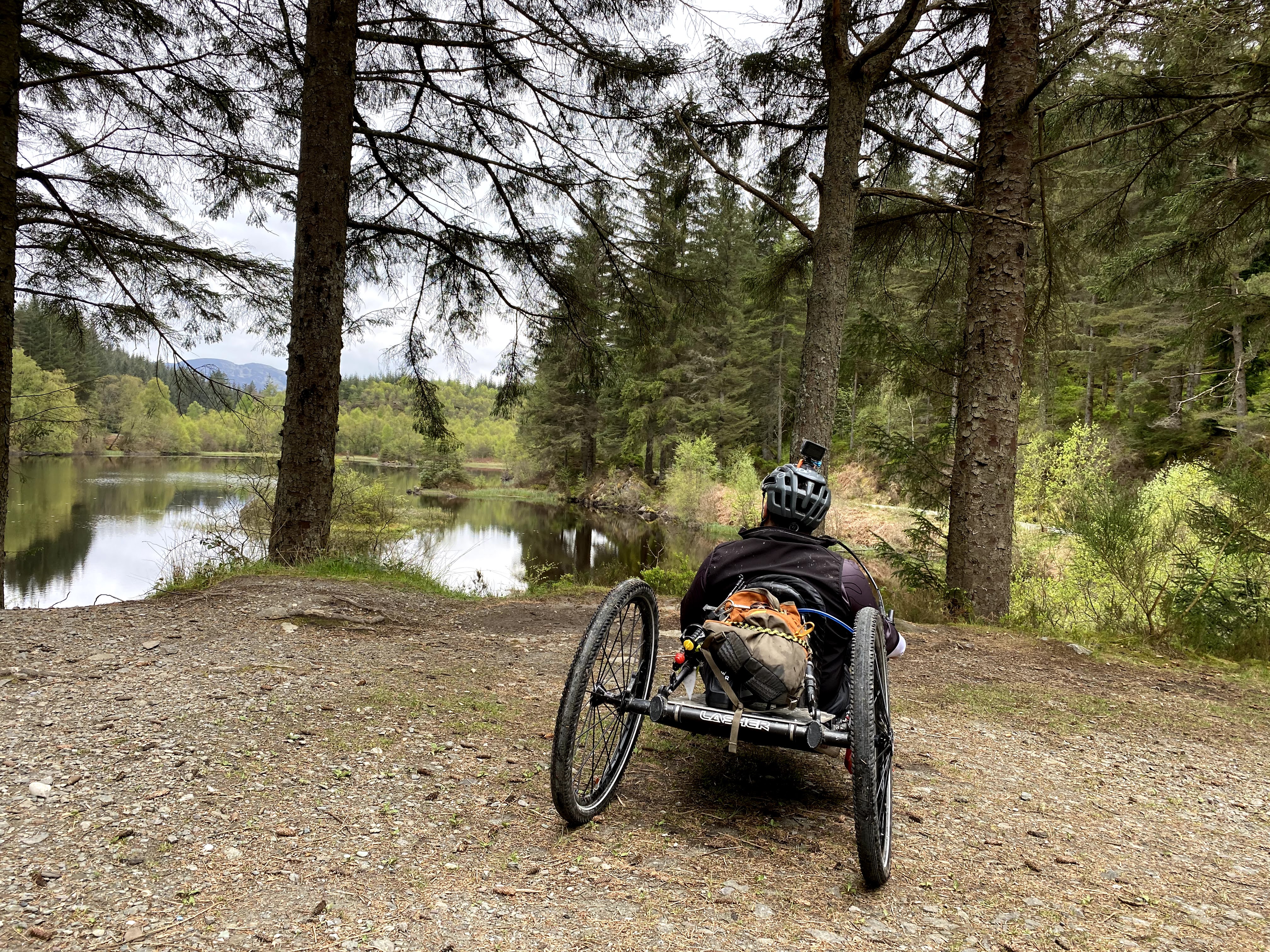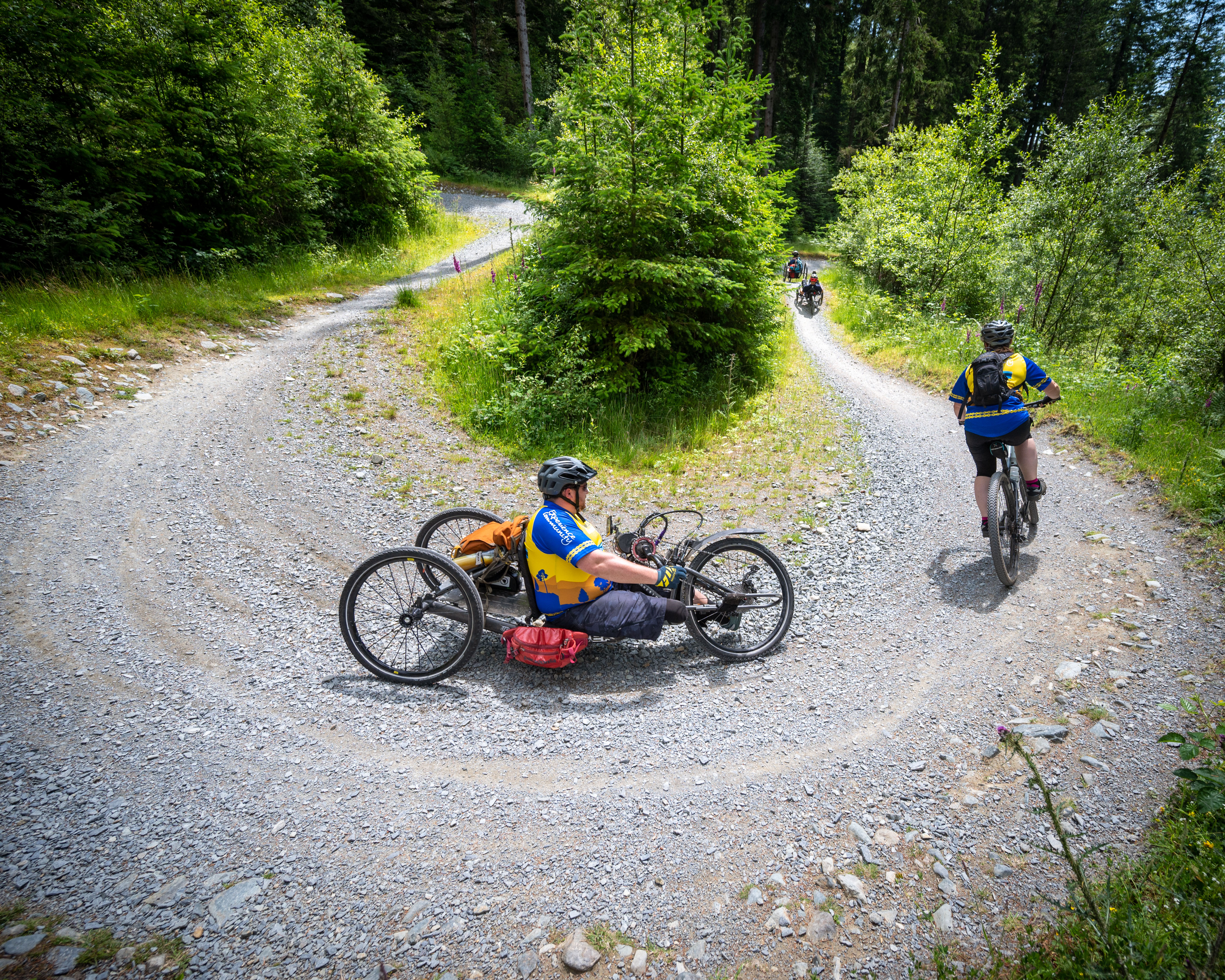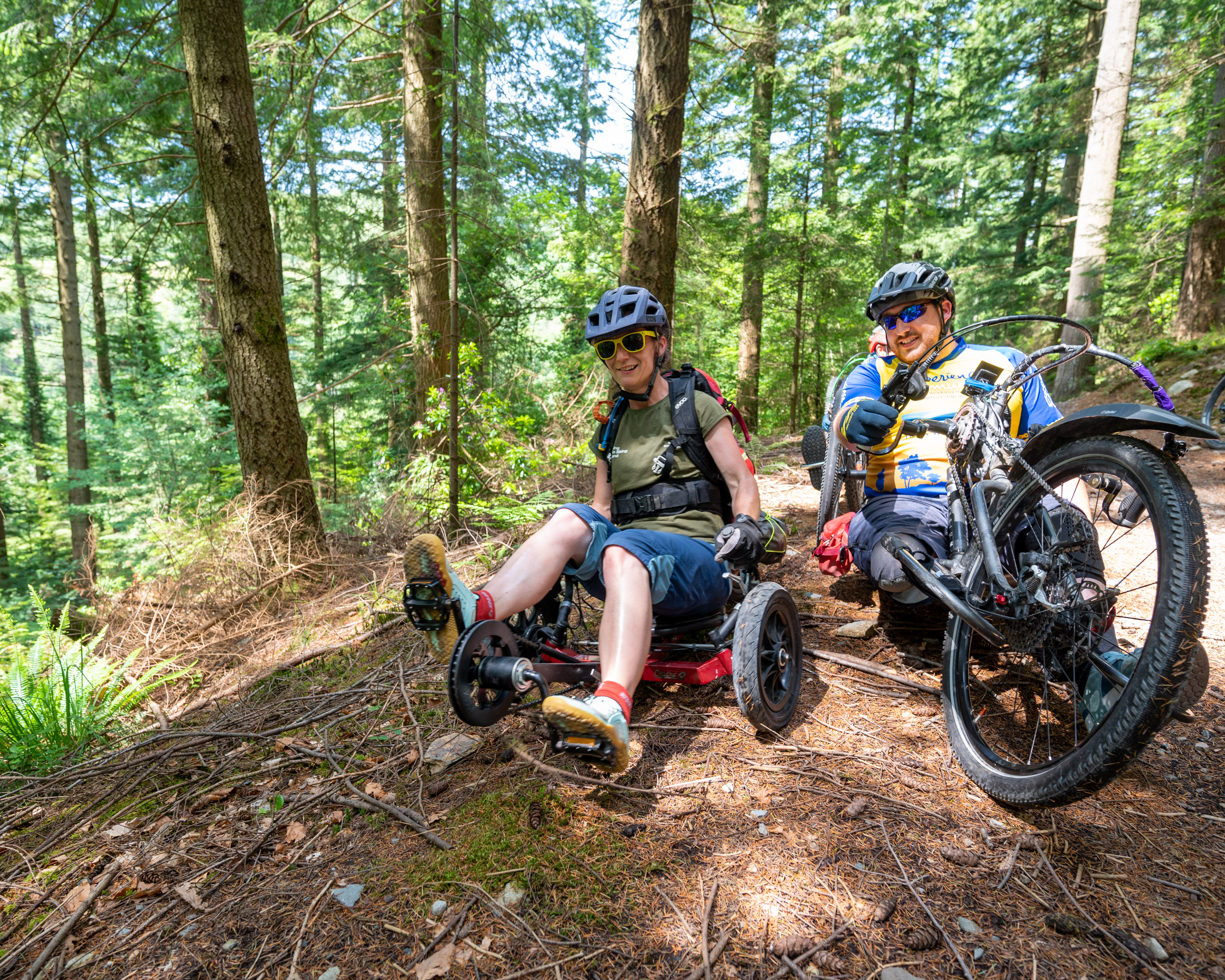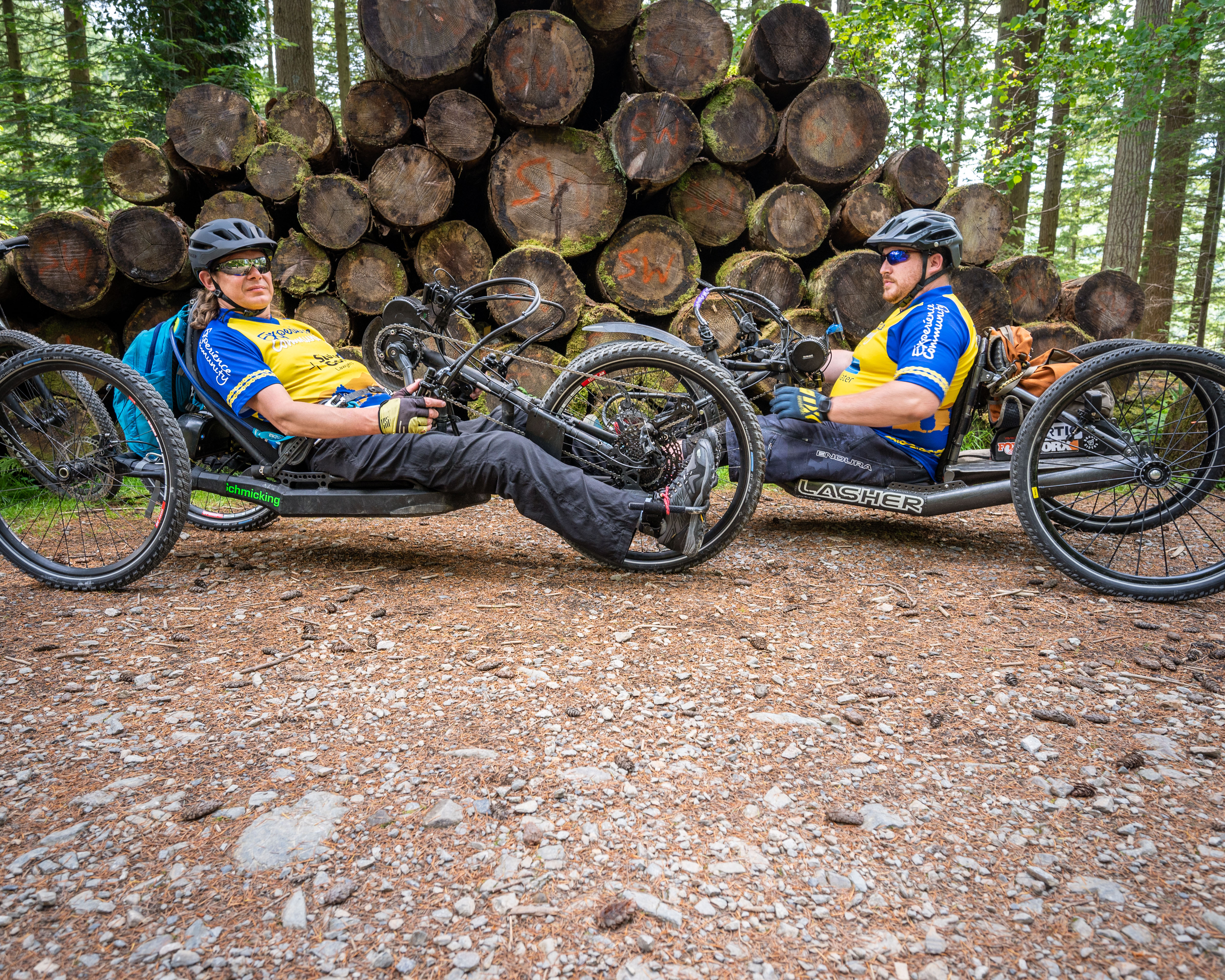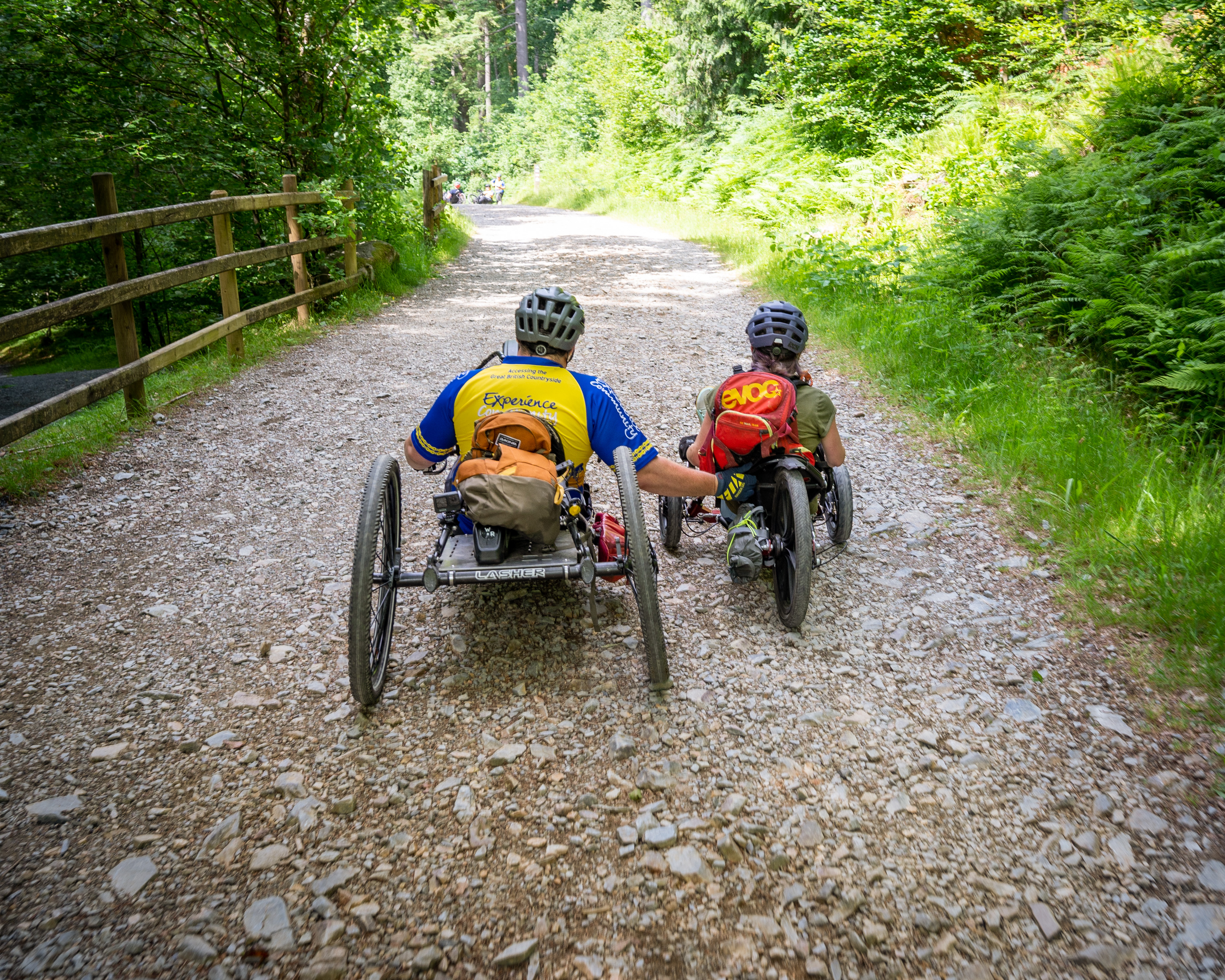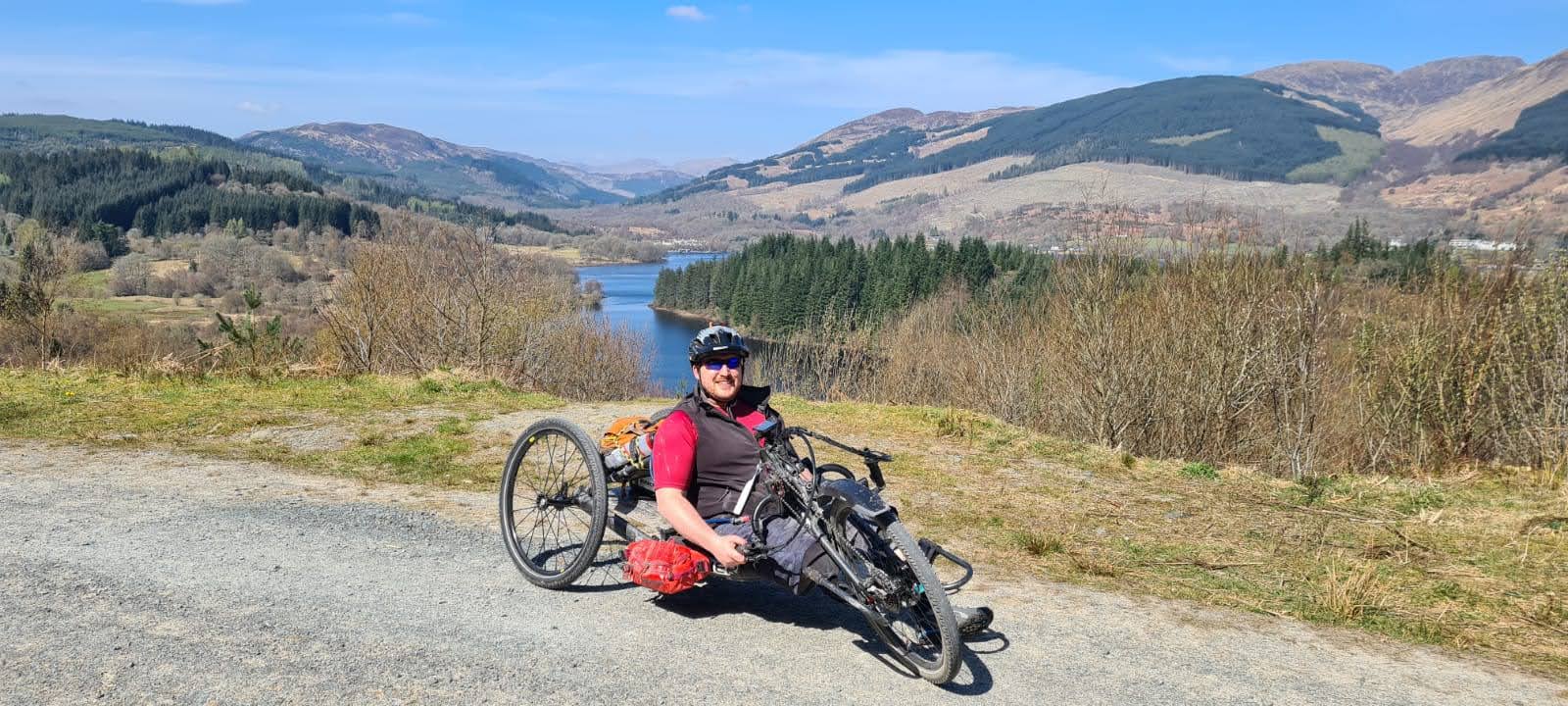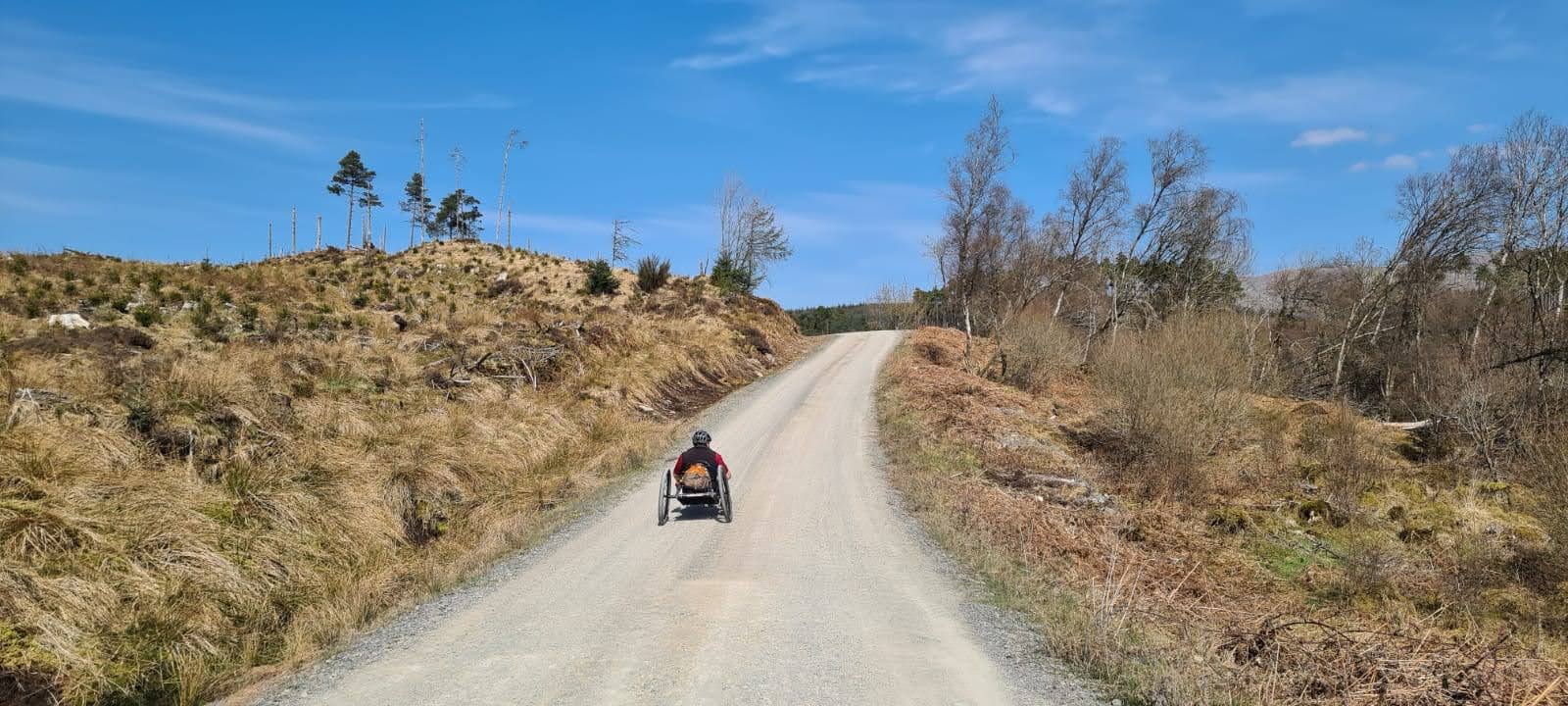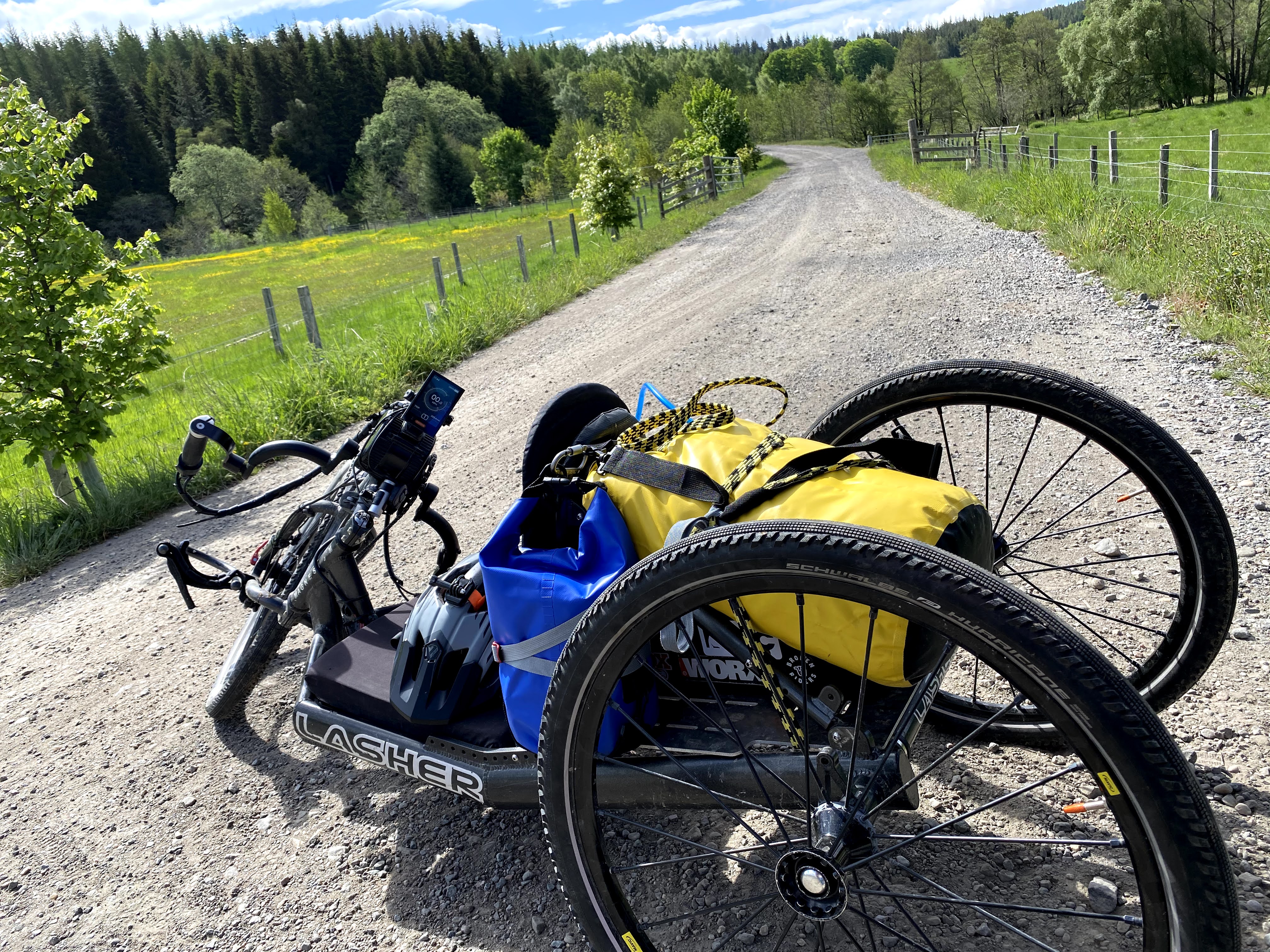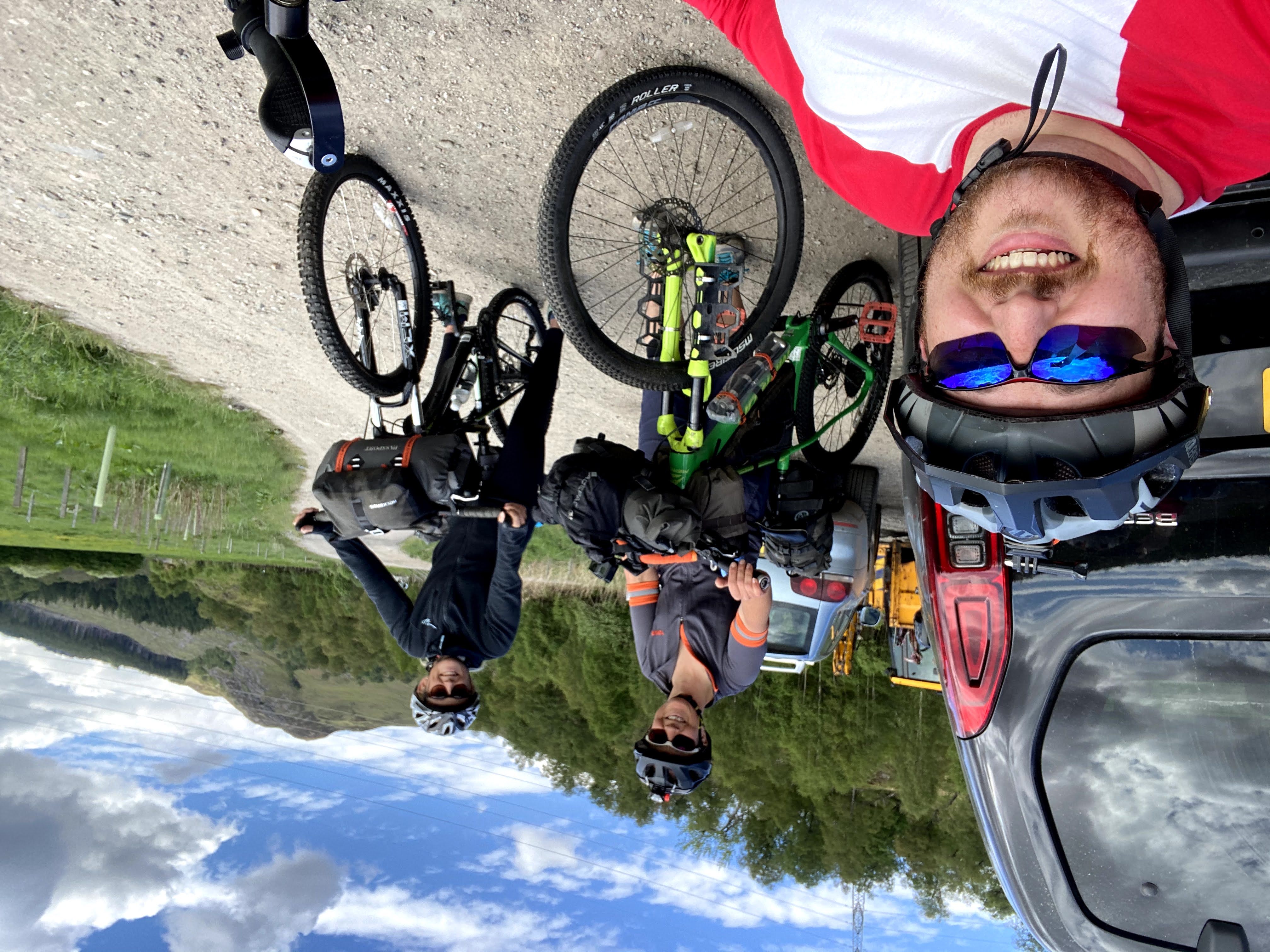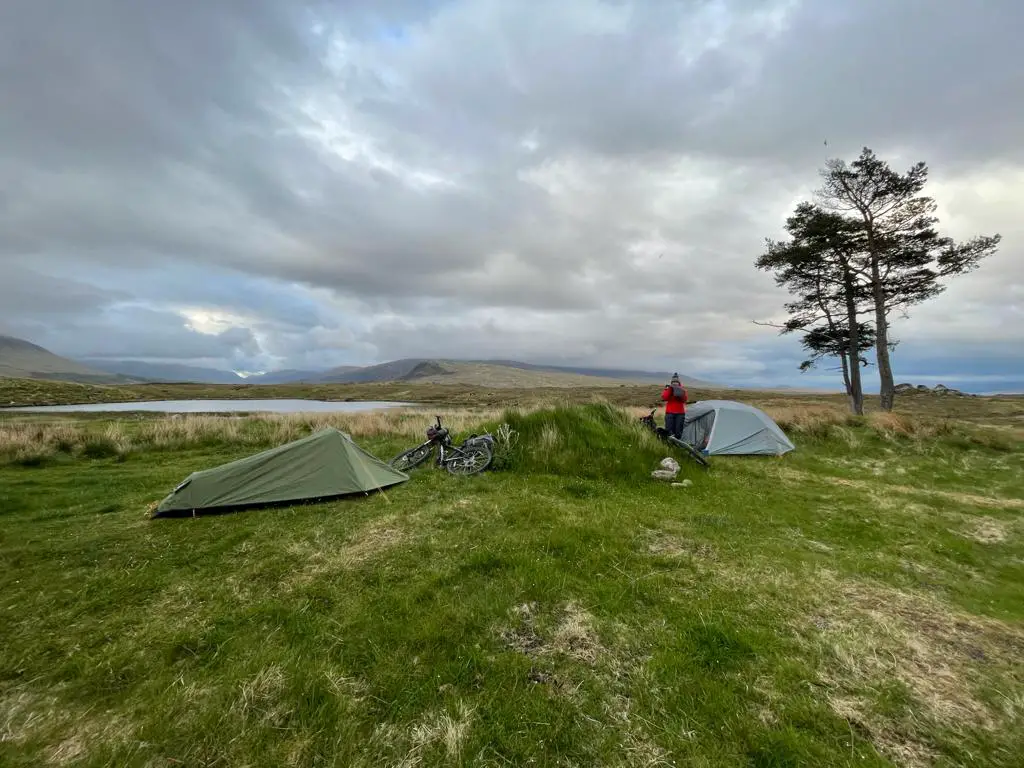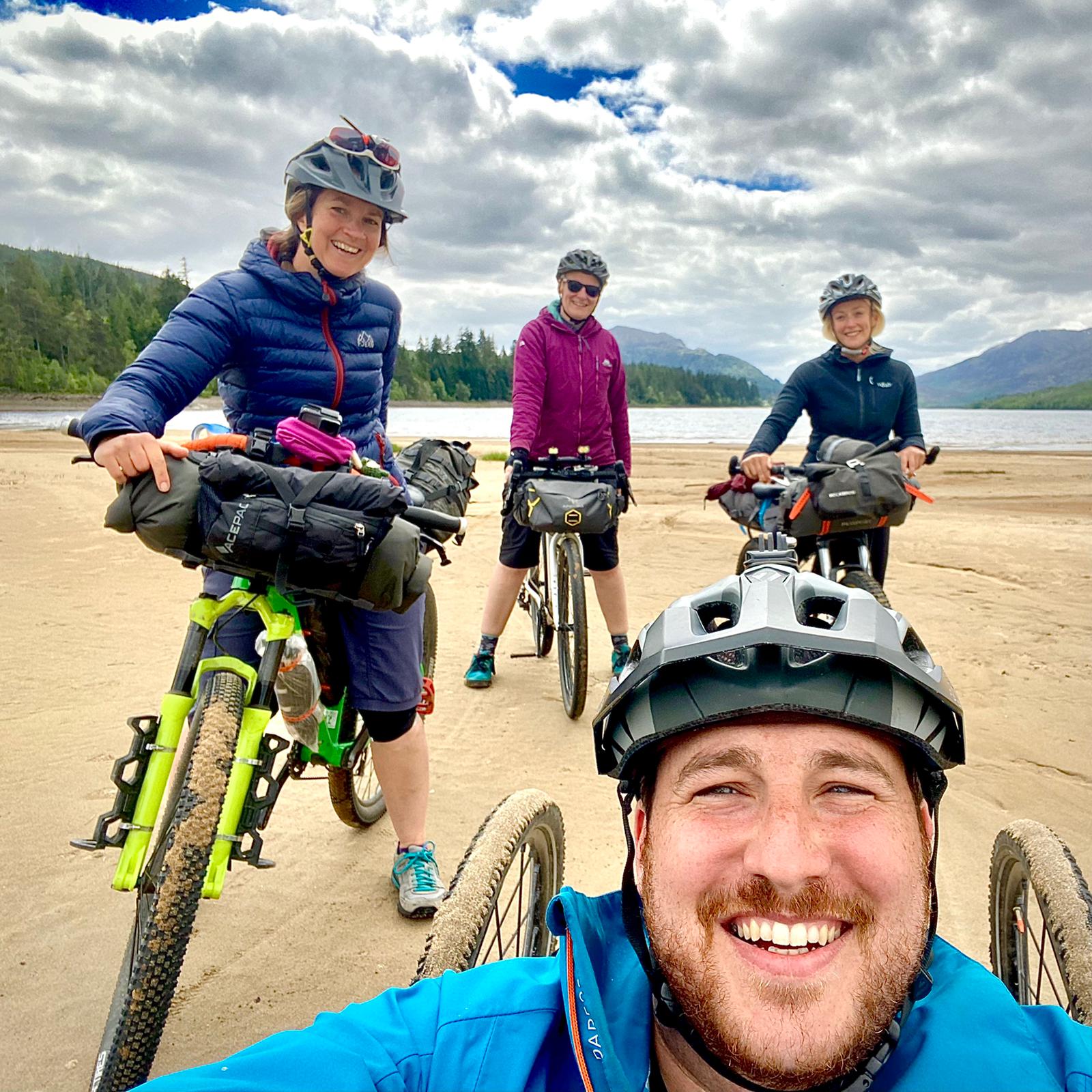El Jaskowska is a rider and passionate advocate for broadening participation in mountain biking. In this Spotlight Series, she is interviewing riders from all walks of life and styles of riding to discover the common joys and passions that bring us all together through mountain biking
“That’s what’s exciting for me” asserts Neil Russell in his dulcet Scottish tones “getting off the beaten track, finding stunning views and that freedom of getting to places I couldn’t get to everyday”. Goosebumps begin to form on my forearms as Neil articulates how riding makes him feel. I can identify so strongly with what he is saying, but Neil is also a hand cyclist. While we share the understanding of how exploring on our bike makes us feel, I can barely scratch the surface of understanding how difficult it is for an adapted rider to gain access to the outdoors. Focusing on what we had in common and wanting to find out more about what drives Neil to seek out off road adventures we sat down for an evening natter. Ideally it would have been in a pub with a roaring fire, in reality it was on our laptops. But imagine the scene…
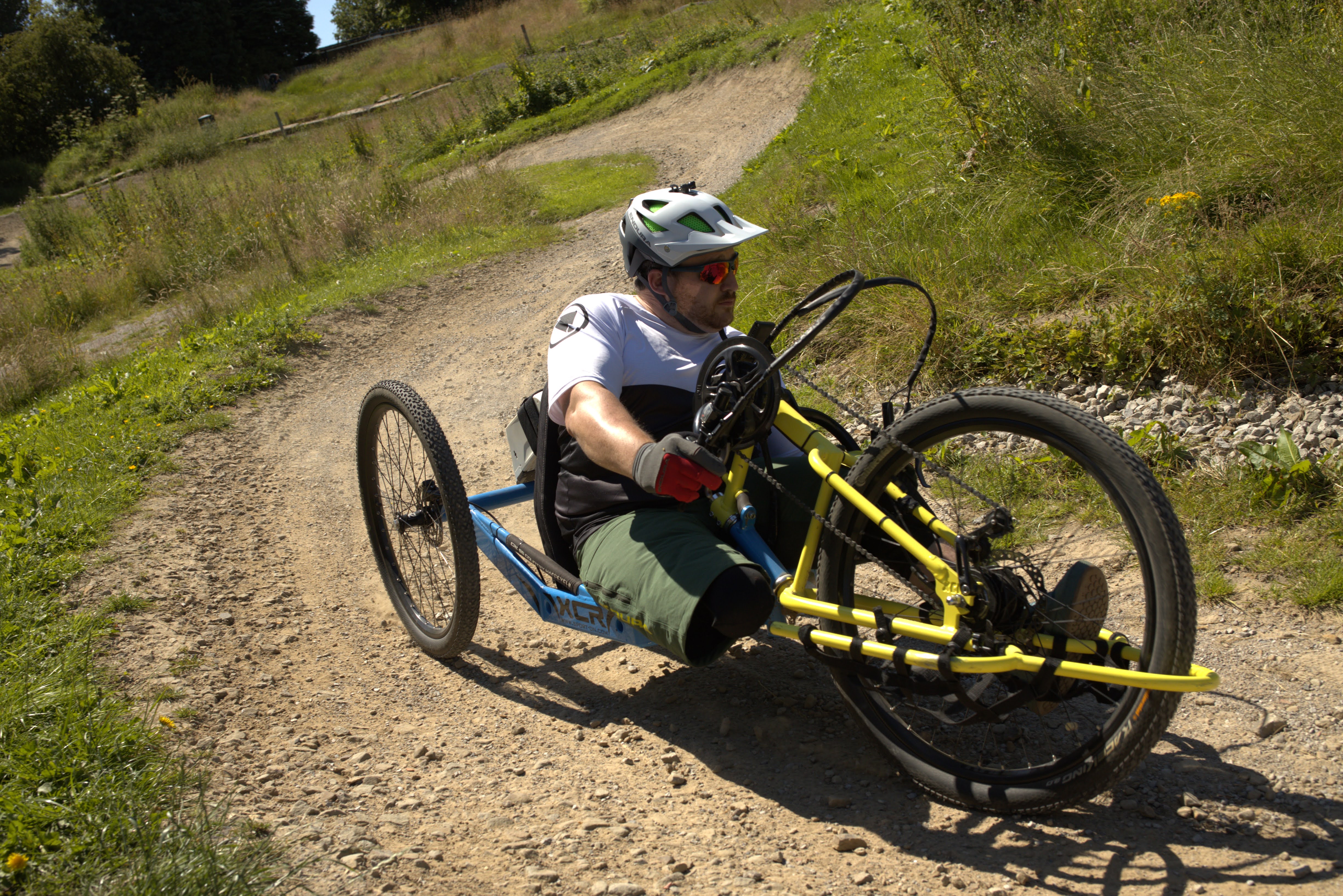
Not from a cycling family Neil blazed his own trail into the world of MTB. How does an adapted rider get into adventurous off-road riding? “Aberfoyle and around that area is where my love for gravel came from and was the start of my connection to the community” The small town in the Trossachs is something of a Scottish Girona. Home to cross country royalty Isla Short and Kerry MacPhee, serial Singletrack cover photographer Pete Scullion and rising star of the trials scene Daisy. The town has been nicknamed Gravelfoyle for its abundance of rolling fire roads, but is not somewhere I was aware of that had a scene for adapted riders.
Was there anything in particular the community of Aberfoyle did to make Neil feel welcome? “They were interested, encouraging and so welcoming for me to ride with them.” he recalls “I didn’t feel like a ‘rider with a disability’, I just feel like a rider on a different kind of cycle when I’m riding with them. They got excited to show me new routes and help me see what I could do in a way where I felt supported, safe and most importantly not a burden or a tokenistic gesture”. Propelled by new friendships and a little electric assist Neil quickly fell in love “It was the fact there’s so much to explore, the routes aren’t super technical, the views are amazing and you can very quickly feel like you’re in the middle of nowhere. It was a whole new playground which just made me feel independent and free.”
Since being bitten by the adventure bug he’s been all over the UK with his hand cycle. “Coed Y Brenin was the first trail centre I ever went to and I loved it and was so impressed as to how accessible it was which made the whole experience so much better and inclusive”.
Neil is also blazing trails in his professional life. At university he researched the inclusion of physically disabled participants in Outdoor Education. In his second year he realised he didn’t want to be a classroom teacher so went down the outdoor education route, eventually meeting Craig Grimes, the MD of Experience Community, a not for profit based in west Yorkshire focused on the inclusion of disabled communities in the outdoors. “It’s the only organisation that I know of that does what we do in the way that we do it. Those who lead and deliver with Experience Community all have a physical disability themselves.” says Neil. “Most adapted riders will have their first taste of riding a hand cycle going around a track. A clinical sanitised environment around a track is not freedom.” so Neil merges his passion, skills and knack for problem solving. A huge barrier to adapted riders is finding the right sort of equipment. The world of hand cycles is far more complicated than 29er or 27.5. “Adaptive equipment is expensive and very specific, so we give people support in trying and purchasing the right equipment. The real delight is helping someone find the right piece of kit, learning how to use it and giving them that freedom.”
Neil’s experience has also changed his own perspective. “I’ll put my hand up, I was one of those pricks that was like ‘e-assist is cheating’. That stereotypical attitude! I look back and I cringe. I’m like what a dick! I tried it and it was such a game changer. For people who have limited power or limited muscle control it’s a complete game changer.” Neil explains that because hand cycles are predominantly front wheel drive, you’re recumbent but not lying as flat as road racing hand cycles and pushing the pedals with your hands. It’s physically hard on your shoulders, couple that with the gradients and loose terrain of riding off road and it makes complete sense.
What strikes me is how personally and professionally motivated to get everyone out on bikes Neil is. But he admits that it is strange having himself and his personal story central to that, especially when his personal hobby and professional life are so closely intertwined. While making friends who are non-disabled has been fantastic, he also enjoys the solitude of riding by himself – but the organisation he works for wouldn’t recommend going out on your own. How does he manage this being mindful of doing it safely? A ride in the snow where his chain snapped was a sobering experience. “It was beautiful in the snow but it was really stupid. After that I realised I needed to change my approach to risk management. It’s helpful from a business perspective and that information can be shared. Just little guidelines like telling people where you’re going, and not going further than 3km away from a main road. It’s exploring… within the parameters of what is safe. If you don’t do that it’s selfish.” Resource material to draw on for adapted riders is limited, especially in the mainstream. So all knowledge that can be learned and shared is valuable for enabling more adapted riders to discover and enjoy riding off road.
Just like his non-disabled riding friends, Neil recently caught the bikepacking bug, and he’s caught it hard. “Seeing able bodied riders going off bikepacking I thought ‘There’s an independence and self reliance that I would like to have’” – so off he went! “My favourite overnighter was from Loch Laggan to Corrour Station with a swim in Loch Ossian on the way.”
I’m so impressed by Neil’s attitude to just having a go at things. I was curious to ask him more about where he finds his motivation. “I tend to be driven by friends and family who support and encourage me. I have a lot of self doubt and impostor syndrome. I find it hugely validating that people find my story and what I do interesting. That to me is confidence building.” So what is he going to have a crack at next?
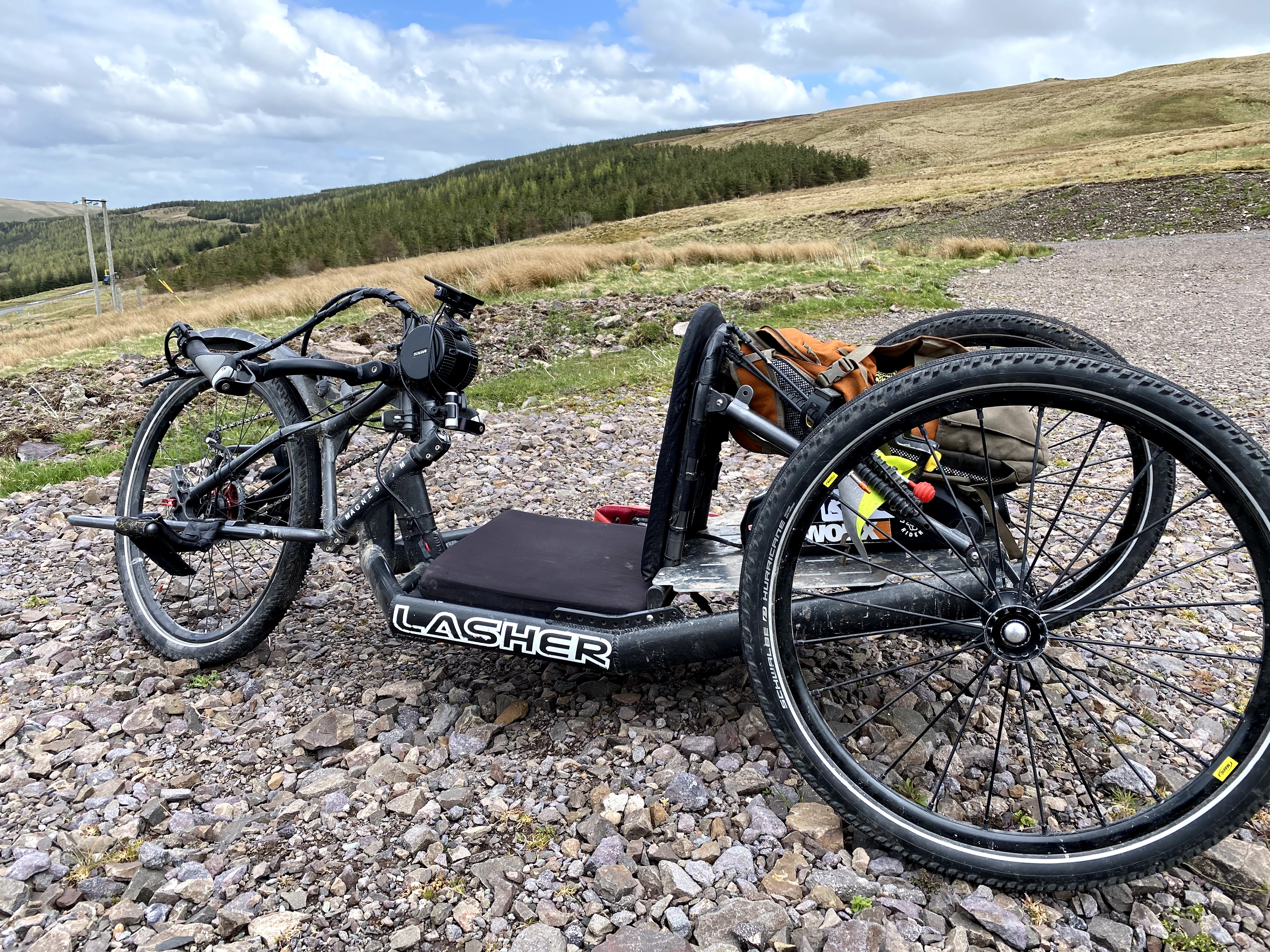
“A semi-supported route of the Scottish Isles” announces Neil “I’m not sure how feasible it is, I’m still doing a lot of the planning. I’ve got a lot of support and people asking how they can get involved and help. I’ve always wanted to see more of Scotland, especially the Islands. I’ve never wanted to do it by car though as I feel like you miss so much so it all kind of came together from that.” Once again Neil’s attitude of taking something on and making it happen comes to the fore. But this won’t all be serious, yes there’ll be days where he anticipates struggling with energy and having to dig deep to keep going, but he’s still planning on squeezing in as much wild swimming as possible.
Not new to pushing the envelope of his comfort zone Neil recalls “A few years ago I went and worked in Hong Kong for a summer on a teaching post and loved it. I did it to push me out of my comfort zone and to push myself and see what I could do, even though I was doing it from a wheelchair.” So perhaps handcycling is just a natural evolution of this drive, to continue the personal growth and development by getting out and adventuring. Is there anything that he is particularly nervous about? “The availability of toilets” Neil replies without hesitation. “It’s a genuine consideration as a person with a disability. I have ways around these things and I’m able to manage it but it’s always nicer to find a loo. A non-disabled person might jump over a wall or behind a bush but it’s a bit more tricky with a handcycle to find somewhere to hide behind!”. But there’s plenty to be looking forward to “As for what I’m most excited about…definitely the remoteness” Neil counters “along with the people I’ll meet along the way, the views and the escape from the day to day grind”.
You can help support Neil’s adventures by visiting the fundraising page and following his adventures on social media.
“Exposure is really why I do social media. But I’m conscious about what messages I put out there. I try not to put out too many opinions.” Neil asserts. He’s clearly thought a lot about how he can use his voice to raise awareness for not just disabled riders but for making riding bikes more generally inclusive. “You can try and change the world but if you go about that with aggression, force or shaming people then they won’t want to learn more. If you’re antagonistic you make people feel uncomfortable, they get scared that they’ll trip up and use the wrong language and so just avoid those situations and conversations. It’s important to let people explore issues together without the fear of getting wrong. ” .
How would Neil like to see the riding community develop? “The things that are generally important for the future are getting more regular people out there riding and that should be exactly the same for disabled and non disabled riders”. I wonder if as riders we focus too narrowly on our preferred discipline rather than taking a broader view of the sport? “Yes I think we split cycling into too many specific genres like road, gravel, MTB” agrees Neil “ rather than our motivations for riding like enjoyment, for a smile, to get some headspace.”
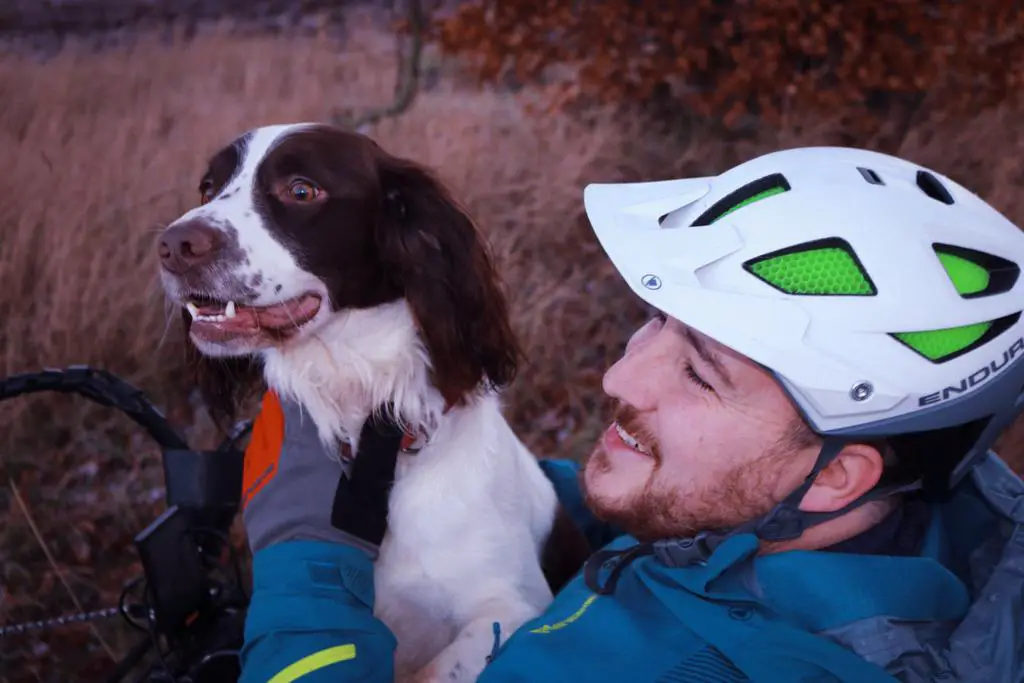
Certainly Neil has showed that connecting with others outside the community of adapted riders has been a really effective way to demonstrate what is possible. Even just the example he gives from his local bike shop where the mechanic (Dieter Carroll, who also writes for Singletrack) has now started delving into the mechanics of Neil’s Lasher handcycle. That’s how getting the message out is going to work, and it is working. “If we want to change people’s lives and their pathways we need to break down the walls of the cliques.” says Neil, and I couldn’t agree more.
